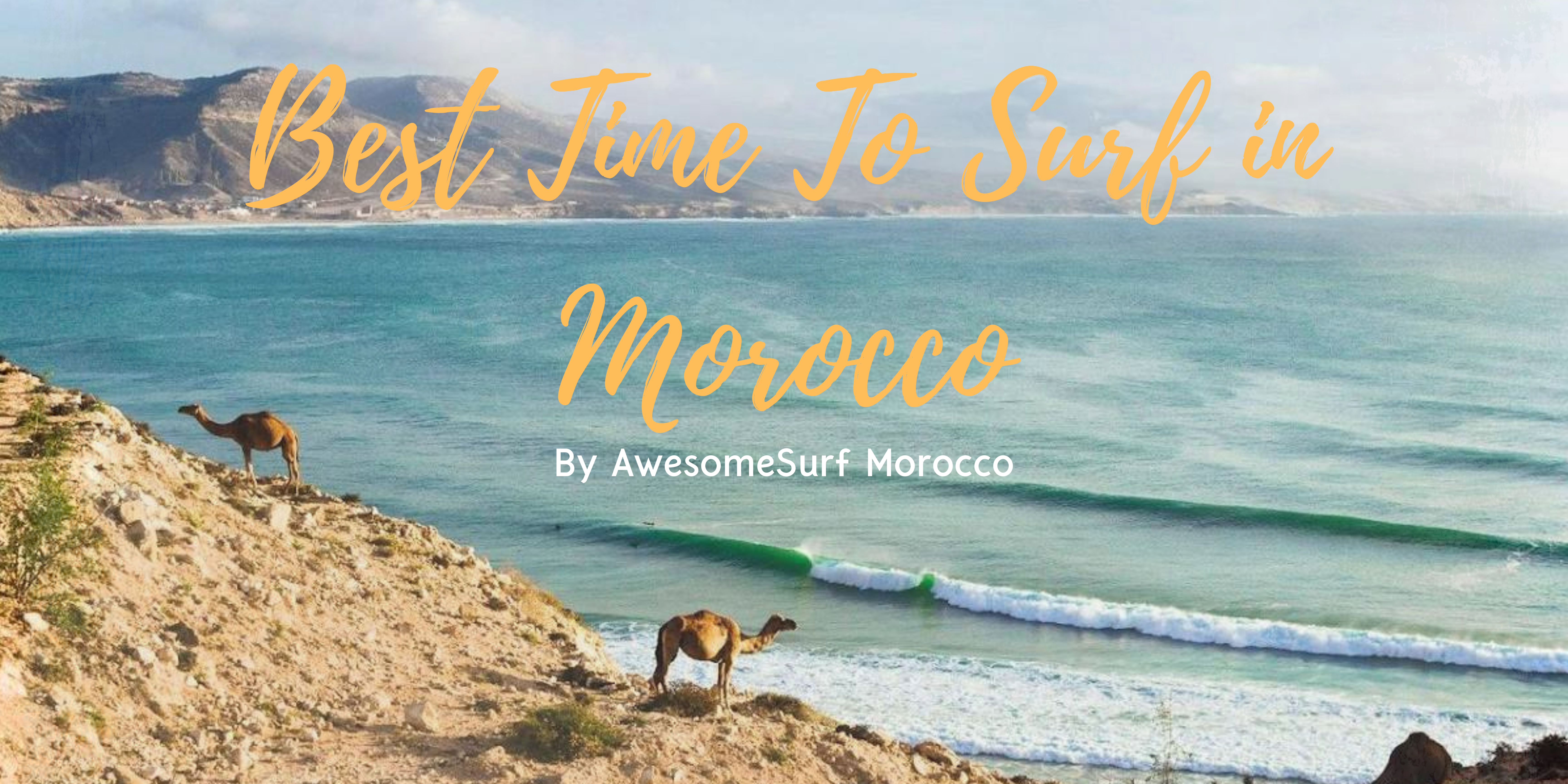
Best Time To Surf in Morocco
Surfer's paradise, offering a diverse range of waves and conditions for surfers of all skill levels.
When it comes to surfing in Morocco, the best time to go depends on your preferences and the type of waves you are looking for. The country has a Mediterranean climate, with hot and dry summers and cooler, wetter winters. Here is a comprehensive guide to help you determine the best time to surf in Morocco.
Summer (June to September):
The summer months offer the best conditions for beginner surfers, with smaller and more moderate waves. The water is also warmer, making it more comfortable for those who are not used to cold water. The summer months are also the busiest tourist season in Morocco, so the beaches and surf spots can get quite crowded.
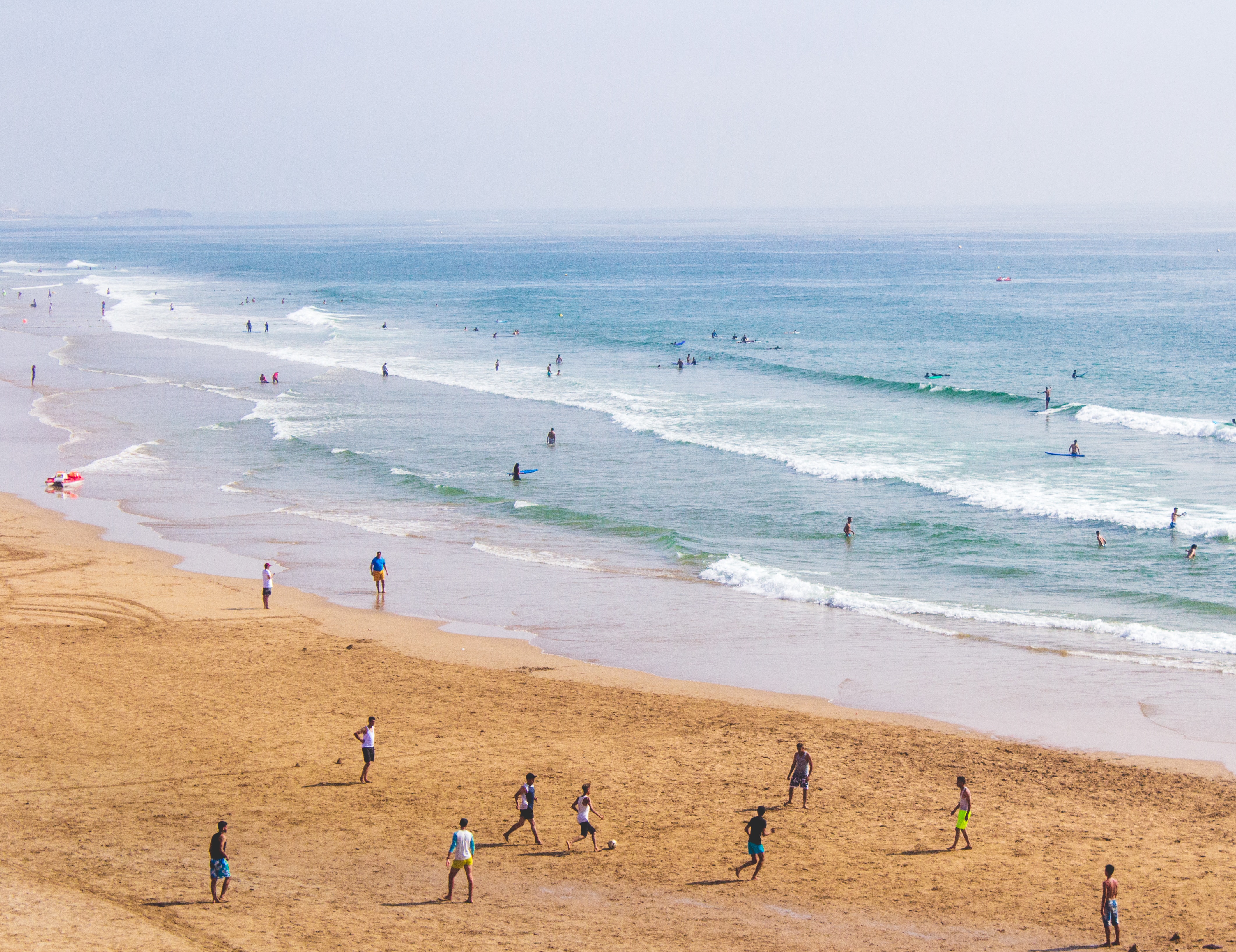
While Morocco is known for having great surf spots throughout the year, summer waves can be smaller compared to the winter months when larger swells hit the coast. If you're a beginner or prefer smaller waves, this might be ideal for you. However, if you're an experienced surfer looking for bigger waves, you might want to consider visiting during the winter season.
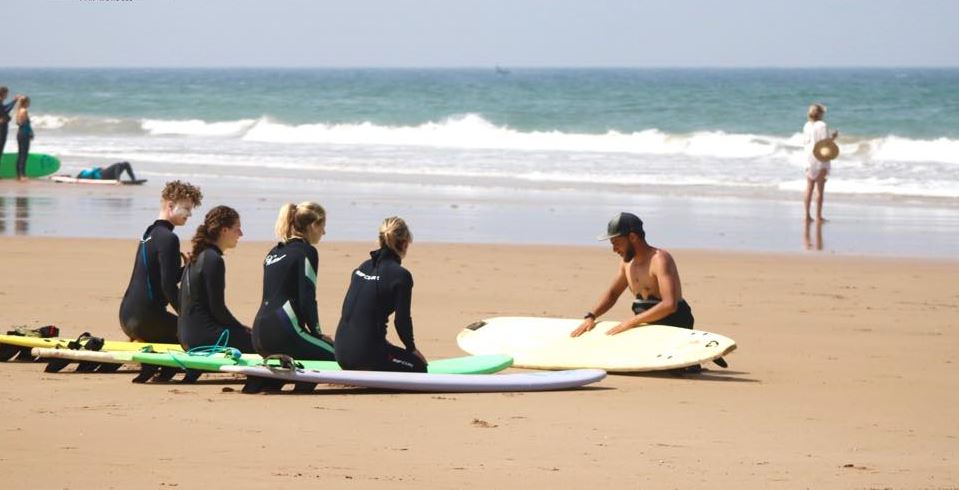
The water temperature during summer in Morocco is generally warmer than in the winter months The water temperature peaks around 22-24°C, enabling surfers to enjoy the waves in boardshorts or a shorty wetsuit, but it can still be a bit chilly. You might need a wetsuit, especially for early morning or late afternoon sessions.
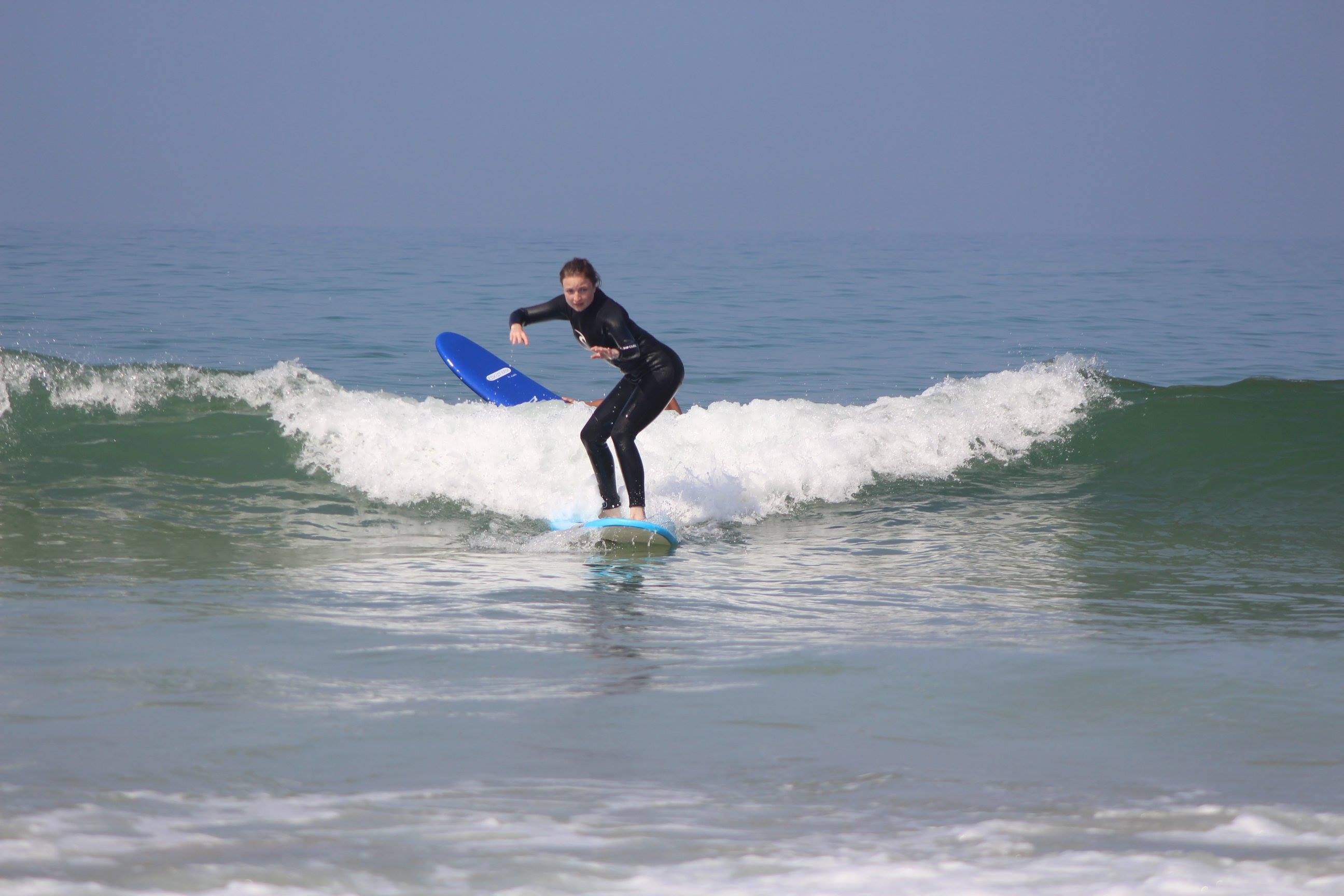
Accommodation and travel expenses might be higher during the peak summer season if you are looking for ordenary holiday in the ather hand a lot of surf camp offering summer deals 10% to 20% so the prices can be more tolerate compared to the new year holiday , so it's a good idea to book your accommodations and flights in advance to get the best deals.

Beyond surfing, you can explore Morocco's rich culture and history. You can visit traditional markets (souks), historic cities like Marrakech and Fes, and enjoy Moroccan cuisine.
Autumn (October to November):
The autumn months offer a transition between the summer and winter seasons, with a mix of small and medium-sized waves. The water is still relatively warm. Autumn is one of the best times to surf in Morocco as it offers excellent wave conditions, fewer crowds, and milder temperatures compared to the scorching summer months. Here are some reasons why autumn is a great time for surfing in Morocco
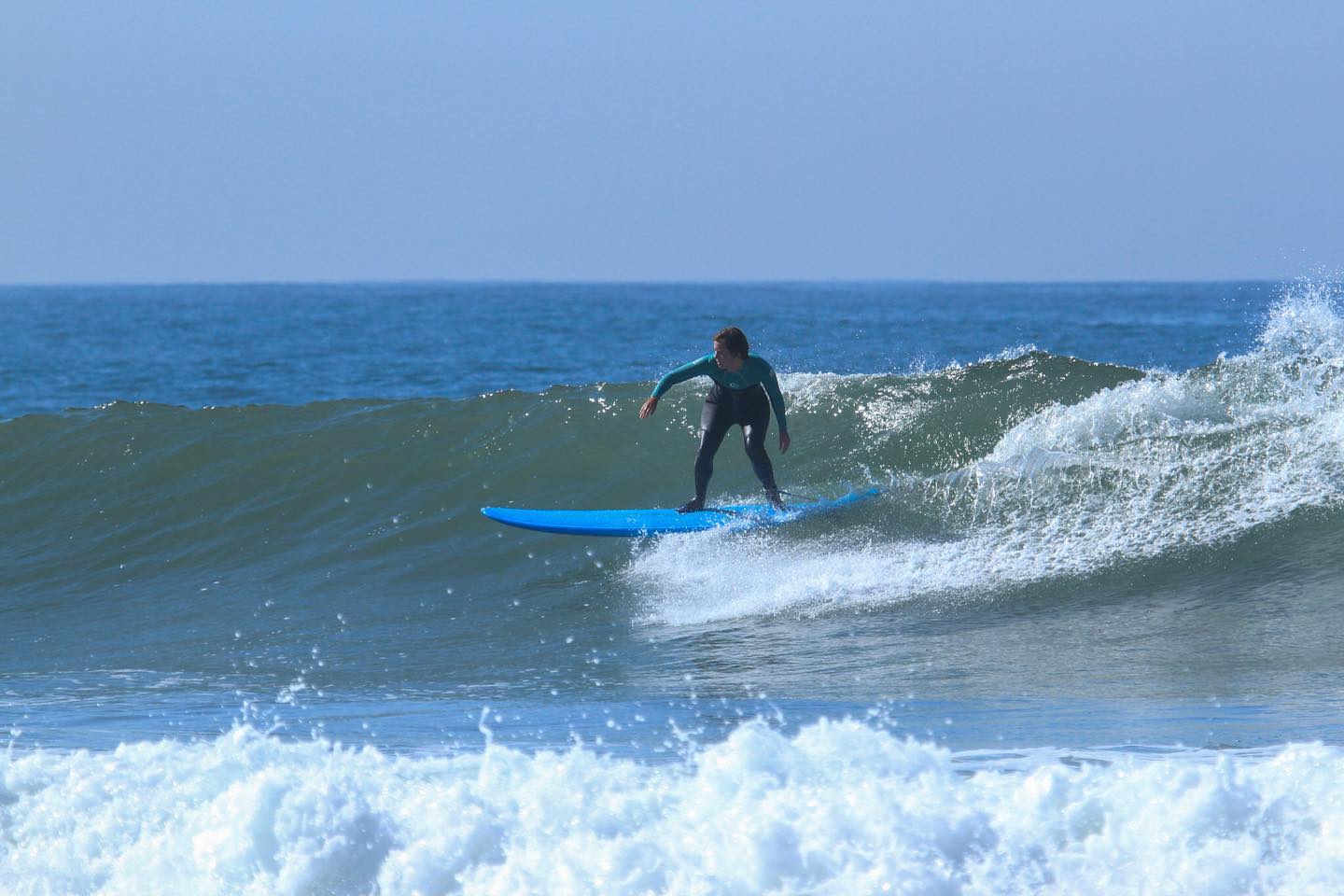

Wave Conditions: The autumn season brings consistent swells to Morocco's coastline. As the summer winds and large crowds subside, you can expect more favorable surfing conditions with good-sized waves that are suitable for surfers of various skill levels.
Less Crowded: Autumn is considered the shoulder season in Morocco, meaning there are fewer tourists and surfers compared to the summer months. You'll have a better chance of enjoying the waves without dealing with heavy lineups, making it a more pleasant experience overall.
Weather: Autumn in Morocco is generally pleasant, with cooler temperatures compared to the peak summer heat. It's a comfortable time to explore the country both on and off the waves.
Accommodation and Prices: Since it's not the peak tourist season, accommodation and travel expenses tend to be more reasonable in autumn. You can find better deals and have more options when it comes to accommodations.
When planning a surfing trip to Morocco, it's crucial to pack the right equipment. A high-quality wetsuit is essential due to the cool water temperatures, especially during early mornings and evenings. Additionally, a sturdy surfboard that can handle a variety of wave conditions is recommended. Don't forget to include a surf hat and zinc sunscreen to protect against the sun
Winter (December to February)
The winter months bring bigger and more challenging swells, as well as cooler water temperatures. These conditions are suitable for experienced surfers who are looking for a more challenging surfing experience. The waves tend to be more consistent and powerful during this time, but the water can be quite cold, so a wetsuit is a must.
Wave Conditions: The autumn season brings consistent swells to Morocco's coastline. As the summer winds and large crowds subside, you can expect more favorable surfing conditions with good-sized waves that are suitable for surfers of various skill levels.
Less Crowded: Autumn is considered the shoulder season in Morocco, meaning there are fewer tourists and surfers compared to the summer months. You'll have a better chance of enjoying the waves without dealing with heavy lineups, making it a more pleasant experience overall.
Weather: Autumn in Morocco is generally pleasant, with cooler temperatures compared to the peak summer heat. It's a comfortable time to explore the country both on and off the waves.
Accommodation and Prices: Since it's not the peak tourist season, accommodation and travel expenses tend to be more reasonable in autumn. You can find better deals and have more options when it comes to accommodations.

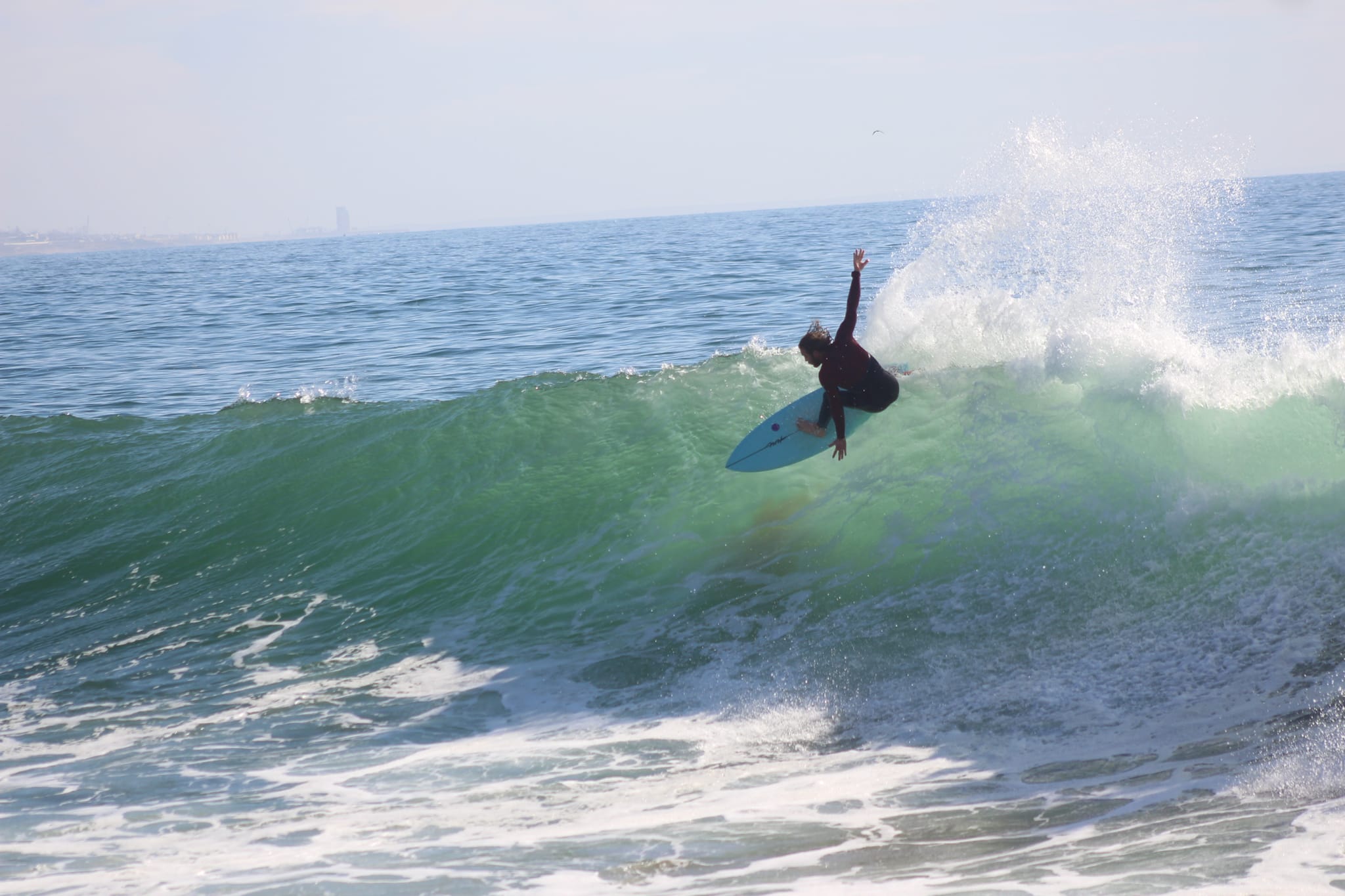
Spring (March to May)
Spring is a great time to surf in Morocco. The weather during spring is generally mild, with comfortable temperatures and plenty of sunshine, making it an ideal season for outdoor activities, including surfing. Here's what you can expect when surfing in Morocco during the spring months:
Wave Conditions: Spring in Morocco typically brings consistent swells and good wave conditions, especially along the Atlantic coast. The waves are often more manageable for surfers of various skill levels compared to the larger winter swells. You can find a variety of breaks suitable for both beginners and experienced surfers.
Water Temperature: While the water temperature may not be as warm as in the summer months, it's still relatively pleasant in spring, ranging from the mid-60s to low 70s Fahrenheit (around 18-23 degrees Celsius). Many surfers find it comfortable with a wetsuit or spring suit.
Crowds: Spring is considered the shoulder season in Morocco, which means fewer tourists and surfers compared to the peak winter months. This can result in less crowded lineups and a more relaxed atmosphere at popular surf spots.
Accommodation: Since it's not the peak tourist season, you may find more affordable accommodation options during the spring months. Surf camps, hostels, and guesthouses often have better availability and rates compared to the summer.

Morocco generally enjoys a mild climate, but it's crucial for surfers to check the weather forecast before their trip. Stormy or windy conditions can significantly affect wave quality and safety, making it less ideal for surfing.
FAQs
What is the optimal month to go surfing in Morocco?
The ideal period for surfing in Morocco spans from September to March. This season offers consistent swells, relatively warm water, and mild air temperatures, thanks to the winter storms in the North Atlantic that send northwest swells to the area's points and reef breaks.
When is the best time to surf in Agadir and Taghazout bay area?
The prime surfing season in Agadir typically runs from mid-September to early April. This period is favoured due to the mostly moderate winds and consistent North Atlantic swell. Additionally, the nearby Taghazout benefits from exposure to favourable offshore winds.
Is a wetsuit necessary for surfing in Morocco?
In Morocco, the water temperature begins to rise in May and starts cooling in October. During the summer and autumn months, a 2mm shorty wetsuit is typically sufficient. However, if you plan to surf in windy conditions or early in the morning, a 3/2mm wetsuit might be necessary. In the winter months, a thicker 4/3mm wetsuit is advisable
When is the best time of day for surfing?
Many surfers prefer early morning or dusk for the best surfing conditions. The concept of 'dawn patrol' involves surfing before sunrise, allowing surfers to avoid crowds and perhaps fit in a session before their day starts. These times of day generally have less wind, resulting in cleaner, smoother waves.
